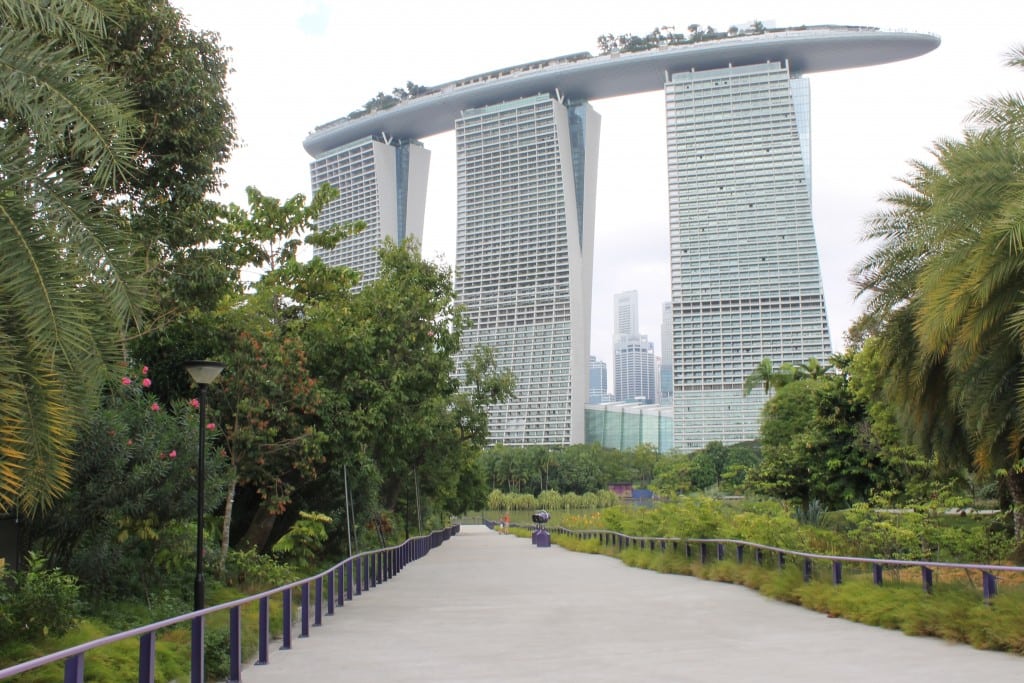Singapore Travel Startups Have Advantages and Challenges That Come With the Territory

Skift Take
Singapore is one of the warmest hotplates for technology in Asia as the government has pumped $1.3 billion into the city’s startup ecosystem and transformed it into Southeast Asia’s Silicon Valley. But Singapore’s cosmopolitan allure and culture of efficiency comes with a price: It has one of the highest costs of living in Asia and, for that matter, the world.
Although dozens of travel startups have launched in Singapore in the past five years as its economy became more powerful these rising costs have frustrated founders and forced them to get creative with talent recruitment.
Skift met with two Singapore-based travel entrepreneurs on a recent trip to the city and they talked of how exorbitant costs have made Singapore both a blessing and a curse for startups.
Fazal Bahardeen, CEO and founder of Halaltrip, a site helping Muslim travelers book hotels and discover Muslim-friendly destinations, has most of his team based outside of Singapore with his technology team is in Colombo, Sri Lanka, for example. He said if his entire team was based in Singapore he’d pay them three to four times their current salaries.
Similarly, Winnie Tan, founder and CEO of TripZilla, a travel planning and media company founded six years ago with a large presence in Singapore, Malaysia and the Philippines, told Skift that 80 to 90 percent of her monthly costs are wages and salaries.
The Singapore government has established programs and funds to help startups navigate high expenses as the Singapore dollar grows more attractive. The government-funded Block 71 campus has brought hundreds of early-stage startups under one roof to help position the city as a global leader in science and technology.
“For the past few years the [Singapore government] has been trying to promote the startup culture here and a Singapore company has a lot of brand equity in Asia,” said Bahardeen, who also founded CrescentRating, which provides rankings and research on halal travel.
“Although, if you go to Block 71 you still see a large amount of non-Singaporeans there. But it is hard for many startups to get the funding needed to attract talent from inside Singapore because you have so many industries competing for tech talent. My philosophy has always been that you need to seek out talent and that talent won’t come to you, and you need to work with talented professionals because they won’t always want to relocate.”
Regarding management executives, Tan has noticed global travel brands with regional offices in Singapore or elsewhere in Asia don’t hire enough locals and often prefer sending executives from the U.S. or Europe to the region once or twice a month.
“We have enough talent here for people to run a company’s regional office,” said Tan. “At TripZilla we have to localize our product for each country and there’s something about Asia that’s different. The market is so fragmented and people from each country have their own ways that they consume travel content. Asian consumers are not getting their news from newspapers anymore; they’re getting it from social media and [messaging apps] and these are the places where they’re getting inspired for travel the most.”
“Southeast Asia is really a difficult monster from different languages and cultures to different phases of technological development,” Tan said. “It also takes a lot of time to grow organically in each country because of this and it’s probably a good idea to find a local partner when moving into a new country. I think anyone who comes in and thinks they can have a blanket solution is naive. [Travelers from each country] don’t just want a site in their own language, the user interface and user experience has to be different in every country.”
Working With Investors and Larger Travel Brands
Travel startups from around Asia converge on Singapore for its deep-seated venture capital connections and to learn what investors look for.
“Singapore is one of the best places in Asia to start a startup because of government grants, access to investors and many of the world’s largest travel company’s have regional headquarters in Singapore such as Airbnb, Expedia, Skyscanner and Sabre,” said Tan. “A lot of these travel giants with a presence in Singapore realize that they can move faster … by listening for new ideas and watching for new [startups] to back. We’ve gotten advice from Sabre and Expedia and they’re not afraid to share their knowledge with us because we’re all trying to crack the same problems together.”
“There are also certainly enough acquisitions in the city to make it exciting, such as HomeAway acquiring travelmob which is based in Singapore and one of the main vacation rental sites for the region. I think the big boys realize as well that it’s difficult to grow organically in Southeast Asia.”
Tan added Singapore and the wider region’s investors now seem more cautious and have made a shift back towards emphasizing profitability. They focus more on funding travel startups with real revenue potential and looking at the talent of individual team members compared to a few years ago.
Bahardeen also watched this shift and finds that keeping pace with technology advancements in Asia consumes most of his time in an effort to draw investors.
“[Accelerated mobile pages], as one example, have become big in the past few months and this is something I knew nothing about last year but now have to make sure my team is on top of,” Bahardeen said.
“I’ve pitched my company to mostly Asian and Middle Eastern VCs and I think they’re less risk adverse than those in Europe or the U.S. but I think that’s getting less and less because there are a lot of U.S. VCs in Singapore actually,” said Bahardeen. “As a faith-based company serving a market that’s associated with negative headlines in some parts of the world, it was tough at first but now more investors want to know about the Muslim travel market. You have to have a diverse team for a company like Halaltrip.”




